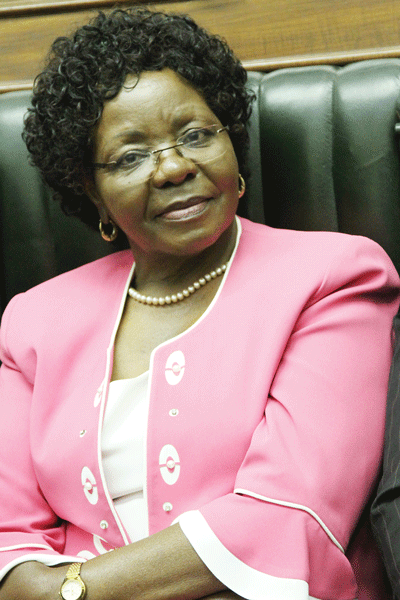
BY NQOBANI NDLOVU
EVEN though Small and Medium Enterprises minister Sithembiso Nyoni claimed the government has finally released Covid-19 support for small businesses, Esther Nyathi, an owner of a small hardware shop in Tsholotsho, Matabeleland North, says this is not enough.
“All that we want is for borders to be opened,” Nyathi, who buys her goods for resale from neighbouring South Africa, told this publication.
South Africa and Botswana remain the main source markets for small communities, grocery and hardware shops in rural Matabeleland, particularly those situated along the country’s borders.
Borders, however, remain closed as a Covid-19 control measure, severely impacting negatively on many in Matabeleland particularly those situated close to Zimbabwe’s borders with South Africa and Botswana.
“What this means is that if my stocks run out, I will be left with no option but to close shop,” Nyathi lamented.
“I don’t trust this government to ever support us. Since when have they cared?”
Several other shop owners in rural Matabeleland echoed her sentiments, saying they were struggling to restock as a result of the continued closure of borders.
- Chamisa under fire over US$120K donation
- Mavhunga puts DeMbare into Chibuku quarterfinals
- Pension funds bet on Cabora Bassa oilfields
- Councils defy govt fire tender directive
Keep Reading
The shop owners rely mostly on cross-border transporters, commonly referred to as omalayitsha, for the transportation of their goods.
Omalayitsha are also seen as a source of reliable transport for communities in rural Matabeleland, some of whom have never been to Bulawayo but by-pass the city via rural dust roads to Plumtree border post as they return to their bases in Botswana or South Africa.
With the Covid-19-induced border closures, omalayitsha have also been grounded prompting many to turn to local commuter transport services to make ends meet.
“Under normal circumstances, I will receive my goods for resale fortnightly, or weekly depending on the business,” added Gilbert Ncube, another grocery shop owner from Maphisa, Matabeleland South.
A visit to Maphisa showed that while some traders still accepted the Zimbabwe dollar, the pricing forces consumers to prefer transacting in rands owing to the affordability of goods and services in that currency.
The rand is the trading currency of choice in rural Matabeleland, prompting many shop owners to import goods from South Africa for resale in that country’s currency.
A number of small to medium enterprises in Maphisa and Tsholotsho also bemoaned the continued closure of borders, pleading that their businesses faced little chance of survival.
“I don’t bother myself thinking of travelling to Bulawayo for restocks as it’s expensive there,” Ncube added.
“What it means is that I will then have to price myself out of the market to break-even… that is why we wish borders to be re-opened.”
The majority of shop owners in rural Matabeleland do not accept mobile money payments such as EcoCash.
“We plead for government support to open borders to save our businesses,” Ncube said.
While other shop owners bemoan lack of budgetary support, others claim to have kept their businesses running through use of cross-border smugglers for supplies.
“There are risks associated, but that is the only way my family business can survive,” one shop owner, who cannot be named to protect his identity said.
Smuggling is rife at the country’s borders with the government also revealing plans to deploy drones to fight the malpractice.
Tourism minister Mangaliso Ndlovu admitted that small-scale business players had been affected by Covid-19 as borders remained closed.
“Those that have been affected are small players who were in clothing industries and small groceries shops,” Ndlovu told Sunday Southern Eye.
“Those that were registered are getting [bailout] packages, but that is not under my ministry, you can check from the Ministry of Small and medium-sized enterprises (SMEs), they can assist you with more information.”
Nyoni claimed the government has availed $25 million of funding to help SMEs revive businesses affected by Covid-19.
“We have a recovery fund for SMEs. We have availed $25 million through the Women’s Bank.
“It is open to all SMEs across the country,” Nyoni said as she called on SMEs to apply for emergency funding.
The $25 million is part of the $18 billion stimulus package announced by President Emmerson Mnangagwa on May 1.
Government has said borders will remain closed except for returning citizens and cargo, but for small-time business players waiting is painful.











